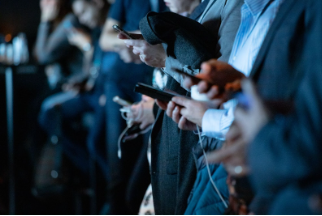With the limelight of social media increasing daily, elementary students all around the world have shown an eager intention to participate in this wide spreading form of media. Elementary students’ ages range from 5-11, even though these apps typically have an age verification of 13+ years old. Younger students might not realize it now, but in the near future, their lives might be greatly affected just by picking up their phone and downloading an app.
As the public tries to make a barrier between children and social media, they still manage to make their way into the various social media platforms. In fact, “One-third of parents of children aged five to seven said their child had a profile, which rose to 60% among children aged eight to 11.” said Daria Kuss, author of an article on The Conversation. Let this be a statistical concern, as those ages are the prime years for development in kids. With the interference of the media, there may be changes in the neurological aspect, which is extremely crucial for a child’s adolescence.
A study from the University of North Carolina at Chapel Hill shows that the repetitive checking of social media among adolescents between the ages of 12-13 may be associated with changes in their brain development. Adolescents who checked social media more than 15 times a day became more sensitive to social feedback. If there was this much of an effect on children from 12-13, imagine the forceful consequences kids from the ages 5-11 might face.
Each time an adult posts on social media, they receive a little hit of dopamine to their brain, which they end up craving. The more likes and positive comments they get, the more they have the desire to post and scroll through social media. Yes, this is something everybody experiences. However, this is happening to adults who have already been through the stages of development, and have had experience with people and interactions with the outside world. When a child experiences the loss of likes and comments, they feel shallow inside, creating an even bigger problem of comparison. For example, a child might compare the amount of followers, comments, and likes they are receiving to the people around them, which establishes insecurities and a habit of comparing themselves to others.
Along with the neurological effects, children can also face exploitation which can introduce online predators into their platforms. With the growing popularity of family youtube channels or tik tok accounts, many children grew up behind the camera. As this might seem like a past time, there are many cases where the children are being “overworked”, or even used for the financial stability of their parents, as said in CNET. These children’s faces are exposed to the camera for countless hours, causing them to be captured during their lowest times, even during times of grief. Not only does this spare kids emotions but it also creates a different type of character that they have to put on when the camera is on. As a result, children are at risk to so many different types of online predators, concealing their emotions, and even various forms of backlash from viewers.
Ultimately, along with these lasting effects that come with the love for social media, many teenagers have gained online regret by the ripe age of 16. To talking personally about something to a friend, to posting pictures during the wrong times, there are many ways an uneducated teenager can develop regrets. This can easily tell us that social media is not the place where children belong, and it is certainly not something that we should walk away from.
Although it connects different parts of the world together, creating a social unity, the human brain will always have its neurological effects. As a community, we must take the steps to educate children, young adults, and even grown ups about how we properly use social media to reduce these life changing outcomes. Social media can be a curse, and a blessing, all at the same time.









Isaiah Poole • Nov 2, 2023 at 9:50 am
I believe that this info can help me learn more on how to get people off the internet so I can talk with actually seeing the world. I like this article.